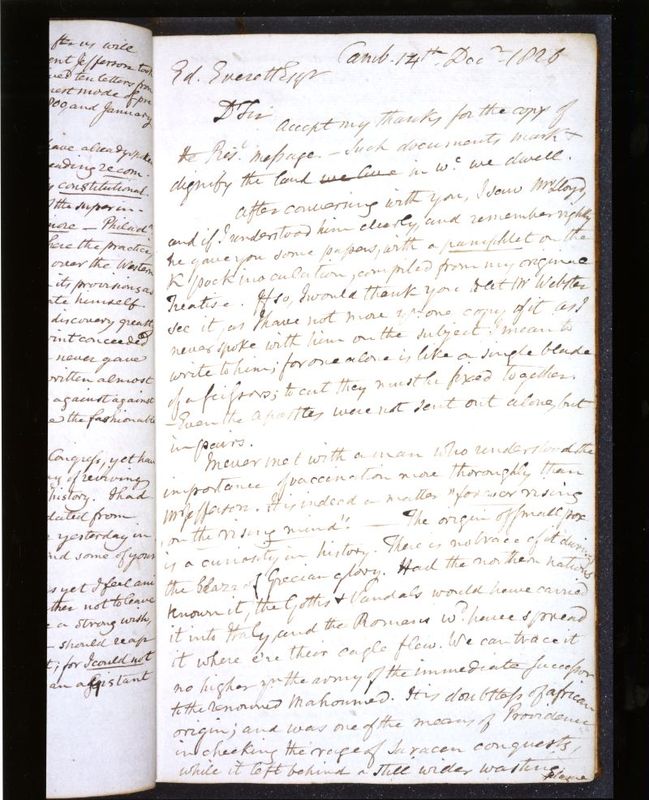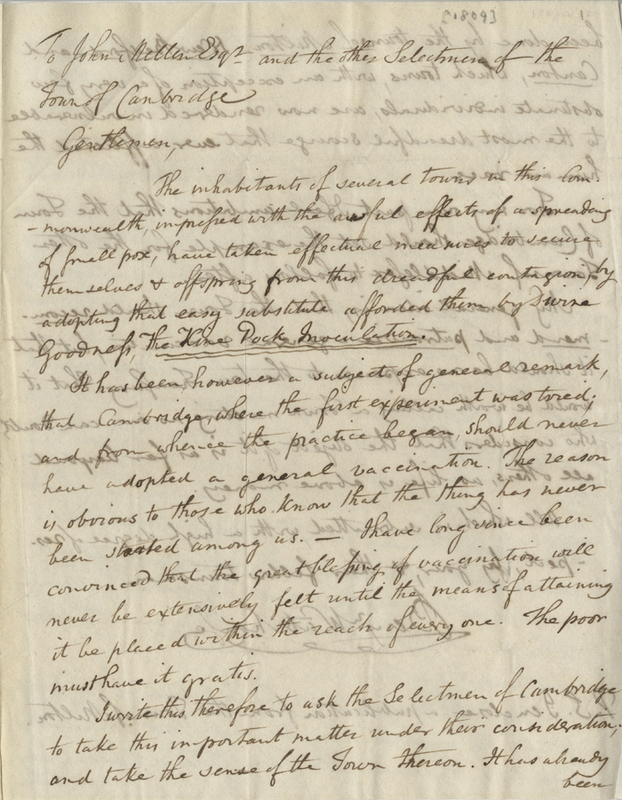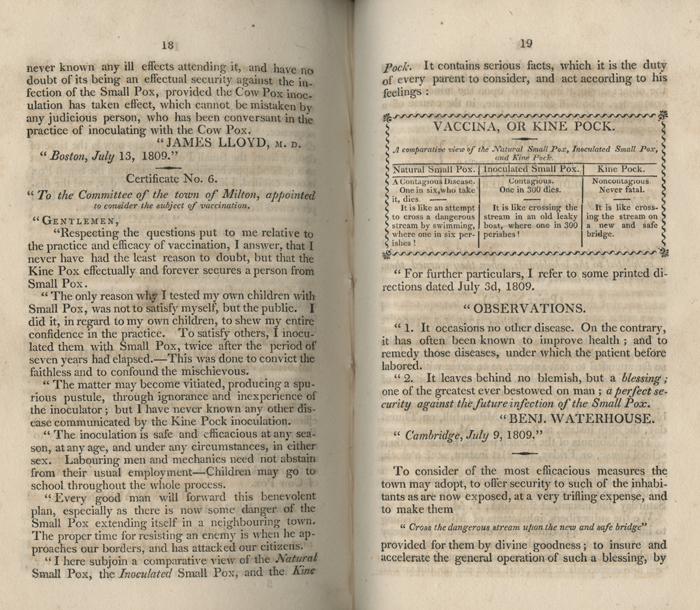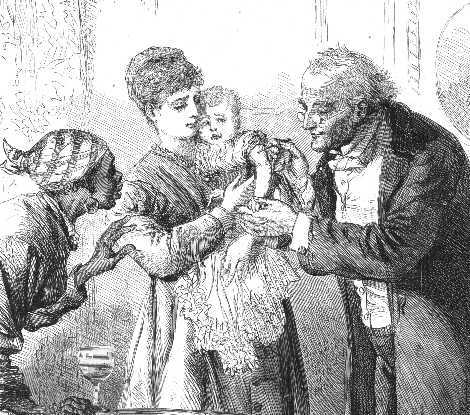Taking Action
In the 1820s, years after his initial vaccination experiments, Benjamin Waterhouse remained closely involved with the subject. He used this letterbook to keep copies of correspondence with President John Quincy Adams, Daniel Webster, and other influential political figures on the advisability of the government appointing a national director of vaccination programs.
In this letter, addressed to Massachusetts Congressman Edward Everett (1794-1865), Waterhouse outlines his experience with vaccination and concludes with this: "Whereas you have a very expensive dept. for destroying human life, would it not be for the honour of the New World to have a little national establishment for the preservation of human life; more especially as the devouring monster, small pox, has a lready destroyed many millions (some say 40) more lives than there are people now on the face of the earth."
This letter from Waterhouse proposes that Cambridge initiate a general vaccination program for all its citizens—“adopting that easy substitute afforded them by Divine Goodness”—and vaccinate the poor without charge.
The Selectmen of Milton, Massachusetts, assembled, published, and distributed this assortment of documents to prove the efficacy of vaccination against smallpox and encourage towns throughout the state to establish vaccination programs. Through the work of physicians Amos Holbrook and John Mark Gourgas, over 300 of Milton’s citizens—more than one-quarter of the population—were vaccinated, and matter was supplied to the neighboring towns of Dorchester, Canton, Stoughton, and Sharon.
Benjamin Waterhouse contributed this statement on his work to the publication.
This illustration from a popular New York periodical encourages parents to vaccinate their children against smallpox—still a major public health risk in the late 19th century. The accompanying column is notable for the contrast drawn between compulsory vaccination programs in Europe, reducing the possibility of any infection from New York's growing immigrant population, and resistance to vaccination in the United States.




